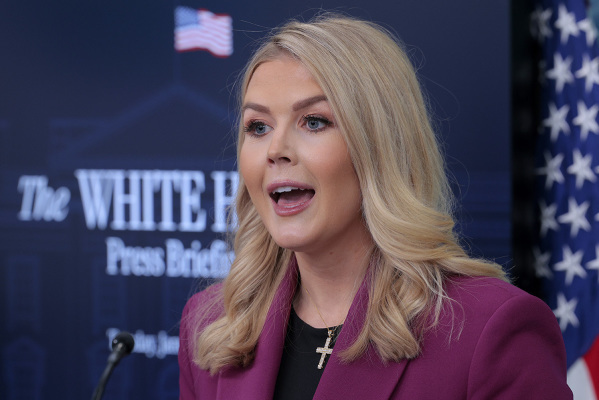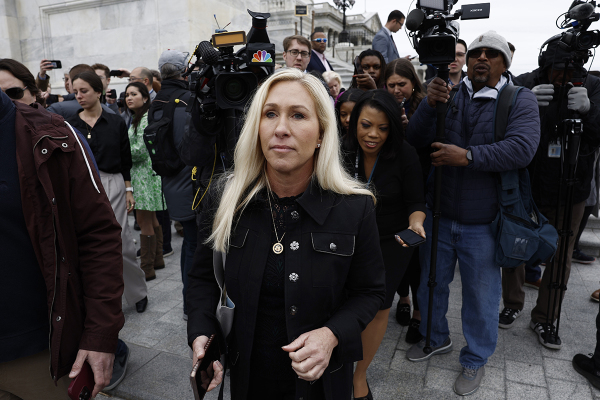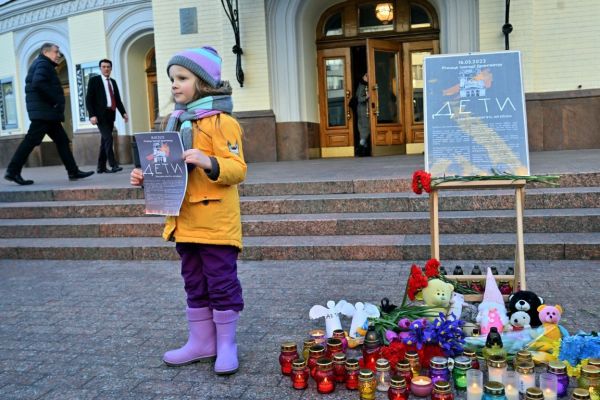Fla. Marriage Definition to be Decided Nov. 4
MIAMI - Supporters and opponents know Amendment 2 will be called the "gay marriage amendment," but neither see it that way. They also agree that the vote will be close, but that's about it.
Amendment 2 would do one thing, supporters say - define marriage as between a man and a woman in the state constitution. Opponents argue that the amendment is unnecessary because there is already a state law banning same-sex "marriage" and that its vague wording would create unintented consequences for gay and straight couples.
Amendment 2 is the only citizen-sponsored amendment on the Nov. 4 ballot - the others were placed by the Legislature and a tax commission. Like the other amendments, it needs 60 percent support to pass.
"I think it's clearly the most important of all the amendments. I think both sides would say that," Yes2Marriage.org state chairman John Stemberger said.
Stemberger and his supporters' argument for the amendment is straightforward. Florida is one of more than 40 states with laws defining marriage as the union of one man and one woman, but that isn't sufficient. They want Florida to join 27 other states that specifically define marriage in their consitutions. That would help prevent court rulings allowing same-sex "marriage" like those in Massachusetts, California, and, recently, Connecticut.
Backers, with strong support from churches and religious groups, have been working since 2005 to get the amendment on the ballot. Some opponents say the amendment is a way to get conservative voters to the polls for Republican presidential candidate John McCain, but supporters say they simply want to preserve marriage as it's currently defined.
"There are profound social, legal and moral implications when once you unlock the door and say 'You're loving and committed, you can get married,'" Stemberger said. "How do we say no to polygamists and group marriage?
"This is not about hating gay people or not liking anyone. It's about understanding the implications of redefining marriage in the wider culture."
Opponents, meanwhile, include the League of Women Voters of Florida, Florida Firefighters, the NAACP and the Florida Alliance for Retired Americans. They argue that the amendment's vague wording would create problems for some unmarried couples, potentially stripping them of health care and other benefits.
"Had they offered an amendment that only defined marriage as a man and a woman then they would get a debate about whether that was a good idea, but instead they offered Amendment 2," said Derek Newton, campaign manager for Florida Red and Blue's "SayNo2" campaign opposing the amendment.
Newton says the first part of the amendment "Inasmuch as marriage is the legal union of only one man and one woman as husband and wife" isn't the problem. It's the second part of amendment - "no other legal union that is treated as marriage or the substantial equivalent thereof shall be valid or recognized" - that he says is dangerous. That language would outlaw domestic partnerships offered by some counties and private companies, he says.
Opponents say more than 10,000 couples have signed up on domestic partnership registries created by cities or counties statewide. Those registries give same-sex couples and heterosexual couples like Newton and his girlfriend rights like being able to see each other in hospitals. Some elderly couples register as domestic partners because if they marry they would lose Social Security or other benefits from a deceased or divorced spouse.
In addition, thousands of other couples aren't registered but still get domestic partnership benefits like health care through their employers, including some county employees, Newton said. He says those benefits could be challenged if Amendment 2 becomes law. Blue Cross and Blue Shield of Florida, the state's largest health insurer, has said it is against the amendment.
But supporters say even if domestic partnerships were eliminated - and they don't think that would happen - that wouldn't prohibit a private company from extending benefits to whoever they wish.
Mathew Staver, the founder and president of Liberty Counsel, a conservative Christian legal group, helped draft both Amendment 2 and the 1997 Florida Defense of Marriage Act. Staver said he looked at language from all other states' constitutional amendments - from paragraph-length amendments in Ohio and Virginia to Hawaii's 13-word approach.
"We did it in the shortest amount of words we felt was necessary and kept it within one single sentence, so it's fairly straightforward," Staver said. "What it would do is prohibit same-sex marriage or same-sex marriage by another name."
Staver and other proponents say that domestic partnerships wouldn't be affected by Amendment 2. Domestic partnerships aren't "treated as marriage" or the "substantial equivalent" of marriage described in the amendment. Marriage has more than a thousand rights, domestic partnership only a handful, according to Stemberger, the amendment supporter.
Other supporters include the Florida Family Policy Council, which Stemberger heads and is associated with James Dobson's national Christian organization Focus on the Family; the Florida Baptist Convention; the Catholic church; and Staver's Liberty Council.
Opponents say if the amendment passes a court would ultimately have to decide whether domestic partnerships are "treated as marriage" or the "substantial equivalent" of marriage and therefore banned. An assessment of the amendment by the Florida Legislature's research arm said that if domestic partnership registries were found to be the substantial equivalent to marriage their "termination could place registrants at risk of losing specified rights and benefits, such as those related to health insurance."
Florida isn't the only state deciding a marriage question Nov. 4. Though the language differs, California and Arizona are also asking voters whether they want to put a definition of marriage in their state constitutions.
Like Florida, Arizona already has a state law banning same-sex "marriage" but is the only state to have rejected a previous attempt to put a ban in the state constitution. If voters approve the amendment in California, however, they would overturn a recent state Supreme Court ruling that made it the second state to legalize same-sex "marriage."
Both supporters and opponents of Amendment 2 plan to increase outreach efforts ahead of the election. As of the end of September, Stemburger's group, previously named Florida4Marriage.org, had collected $1.1 million in cash and in-kind donations. Opponents had raised approximately $2.5 million.






















